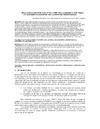Identificador persistente para citar o vincular este elemento:
https://accedacris.ulpgc.es/jspui/handle/10553/73877
| Campo DC | Valor | idioma |
|---|---|---|
| dc.contributor.author | Monterde Rey, Ana María | en_US |
| dc.date.accessioned | 2020-07-30T16:22:38Z | - |
| dc.date.available | 2020-07-30T16:22:38Z | - |
| dc.date.issued | 2008 | en_US |
| dc.identifier.issn | 1813-1867 | en_US |
| dc.identifier.other | WoS | - |
| dc.identifier.uri | https://accedacris.ulpgc.es/handle/10553/73877 | - |
| dc.description.abstract | As a professor of terminology for twelve years, I have observed that students always design systems of concepts related with three kinds of relationships-logic, ontologic and chronological. In order to prove if this limited use of the number of relationships was due to the fact that students were taught only six groups of relationships and that they worked in a field where it was very difficult to establish more than three relationships, I decided to perform an experiment during the 2006-2007 course year. I increased the number of relationships that I taught them and I asked them to create systems of concepts in the field of industrial ceramics, where at least twenty-six relationships had already been found by a previous research. Thanks to this experience, I aim at proving the validity of the aforementioned hypothesis with the goal of thinking about how to improve my teaching methods. | en_US |
| dc.description.abstract | Tras once años de docencia de la asignatura de terminología en la Facultad de Traducción e interpretación de la Universidad de las Palmas de Gran Canaria, observamos que cuando se encargaba a los alumnos el diseño de un sistema de conceptos, sólo utilizaban tres tipos de relaciones: lógicas, ontológicas y secuenciales-cronológicas. Para comprobar si este uso limitado de relaciones se debía al hecho de que sólo se explicaba en clase seis grupos de relaciones y que trabajaban en un campo en el que, quizá, no se propiciaba la utilización de otras relaciones, decidimos realizar una experiencia con los estudiantes del curso 2006-07. Ampliamos el catálogo de relaciones y les propusimos la creación de sistemas de conceptos en el campo de la cerámica industrial, donde ya se había comprobado que existían al menos veintiséis relaciones distintas en la rama de productos acabados. con esta experiencia se pretende comprobar la validez de las hipótesis mencionadas, con el objetivo de reflexionar sobre cómo optimizar la docencia. | en_US |
| dc.language | spa | en_US |
| dc.relation.ispartof | Debate Terminologico | en_US |
| dc.source | Debate Terminológico [ISSN 1813-1867], n. 4, (2008) | en_US |
| dc.subject | 5701 Lingüística aplicada | en_US |
| dc.subject.other | Concept Relationships | en_US |
| dc.subject.other | Systems Of Concepts | en_US |
| dc.subject.other | Terminology | en_US |
| dc.subject.other | Teaching Methods | en_US |
| dc.subject.other | Relaciones Conceptuales | en_US |
| dc.subject.other | Sistemas de Conceptos | en_US |
| dc.subject.other | Terminología | en_US |
| dc.subject.other | Metodología de Enseñanza | en_US |
| dc.title | Relaciones conceptuales en el campo de la cerámica industrial: una experiencia docente con alumnos de terminología | en_US |
| dc.title.alternative | Conceptual relations in the field of industrial ceramics: A teaching experience with students of terminology | en_US |
| dc.type | info:eu-repo/semantics/Article | en_US |
| dc.type | Article | en_US |
| dc.identifier.isi | 000216031600003 | - |
| dc.identifier.issue | 4 | - |
| dc.investigacion | Artes y Humanidades | en_US |
| dc.type2 | Artículo | en_US |
| dc.contributor.daisngid | 53055 | - |
| dc.description.numberofpages | 16 | en_US |
| dc.utils.revision | Sí | en_US |
| dc.contributor.wosstandard | WOS:Rey, AMM | - |
| dc.date.coverdate | 2008 | en_US |
| dc.identifier.ulpgc | Sí | es |
| dc.description.esci | ESCI | |
| item.fulltext | Con texto completo | - |
| item.grantfulltext | open | - |
| crisitem.author.dept | GIR Traducción e Interpretación, Interculturalidad, Lenguas Aplicadas y Literatura de Viajes | - |
| crisitem.author.dept | Departamento de Filología Moderna, Traducción e Interpretación | - |
| crisitem.author.orcid | 0000-0002-0275-8216 | - |
| crisitem.author.parentorg | Departamento de Filología Moderna, Traducción e Interpretación | - |
| crisitem.author.fullName | Monterde Rey, Ana María | - |
| Colección: | Artículos | |
Visitas
234
actualizado el 15-ene-2026
Descargas
175
actualizado el 15-ene-2026
Google ScholarTM
Verifica
Comparte
Exporta metadatos
Los elementos en ULPGC accedaCRIS están protegidos por derechos de autor con todos los derechos reservados, a menos que se indique lo contrario.
